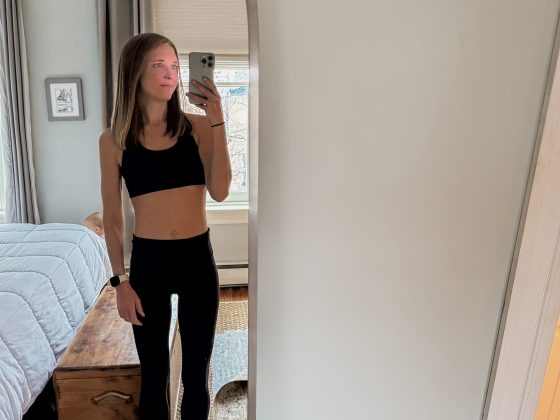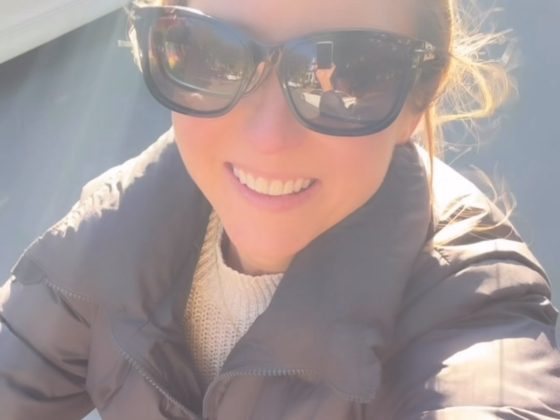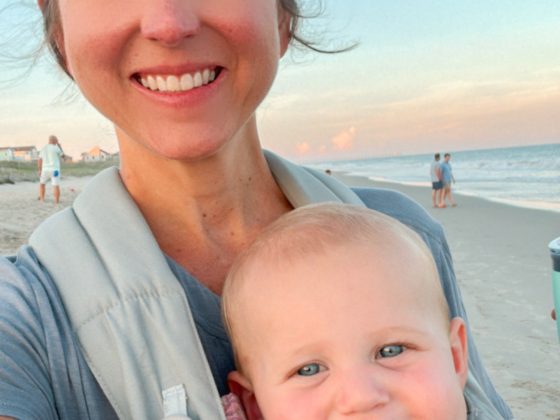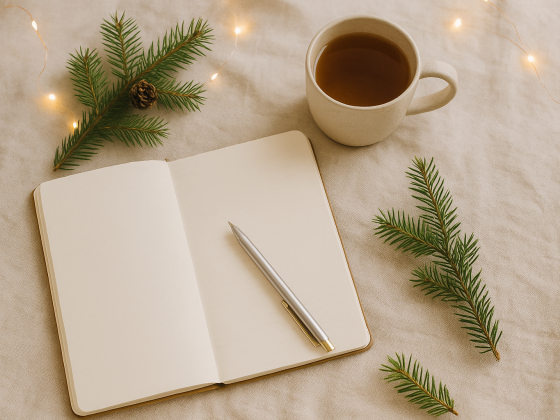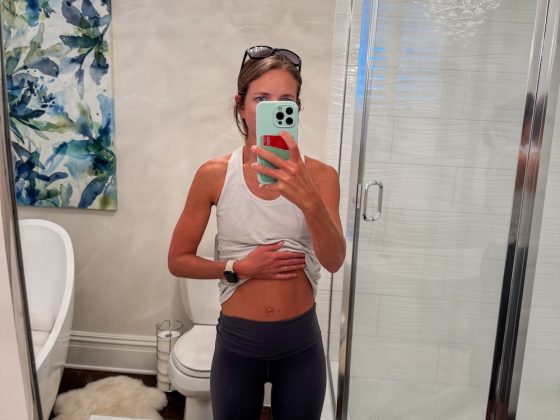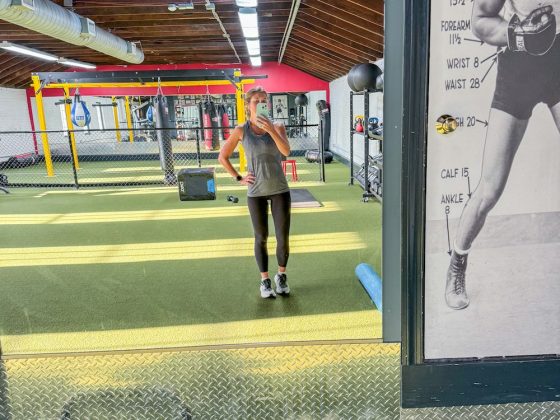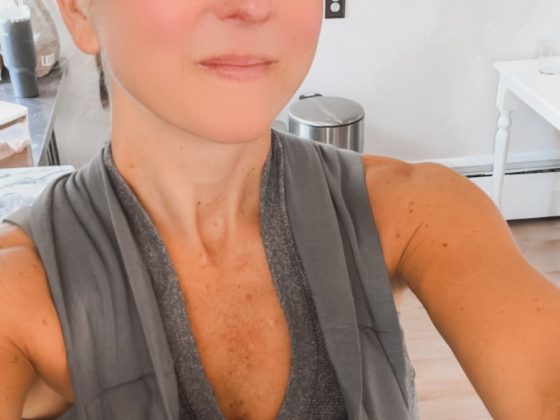I have struggled with sleep on and off for years. Sometimes it is more like insomnia – waking up in the early morning hours of 3am or 4am, failing to fall back to sleep. I toss and turn until a time I feel it is appropriate to get out of bed and start the day. Otherwise, it’s more like frequent middle-of-the-night interruptions, so that when I do wake up, it feels like I have hardly slept at all.
Low-quality sleep affects every aspect of my daily life. Poor mood, lack of motivation, brain fog, extreme fatigue, and increased hunger are just some of the symptoms that show up. This is why optimizing my sleep hygiene has been a top priority in my wellness routine, and yet, it can still feel like a constant struggle.
So when I woke up on the morning of Sunday, June 2nd, having gotten one of the best night’s sleep in months, I immediately attempted to reverse engineer what I did the day before. The answer came easily: it was the day I got off of Instagram. Not only had I quit the social media app for the month, I had hardly looked at my phone. Could my unhealthy screen-time habit have been a source of my sleep issues all along?
To be clear, I am not someone who sleeps with my phone in my bedroom. One of my sleep hygiene non-negotiables is that I charge it overnight on a separate floor of my house. There are many people who sleep with their smartphone next to the bed, and even scroll in the middle of night when unable to sleep. I don’t fall into this camp, but I can still consume a lot of social media during the day. So I got curious – even without nightly use, can social media consumption during daytime hours affect sleep quality at night? I took into consideration both how the blue light from screens impact our hormones, but also how social media affects our nervous system.
How social media use affects our circadian rhythm
Social media use during the day can impact sleep quality due to two important factors: circadian rhythm and nervous system regulation. Your circadian rhythm – also known as the “biological clock – consists of your natural hormonal fluctuations throughout a 24-hour period. The two main hormones to keep in mind when it comes to your circadian rhythm are cortisol and melatonin. The former is your stress hormone, with the latter being your sleep hormone. If everything is working adequately, cortisol starts to rise overnight, peaking between 6am to 9am. It is what wakes you up and makes you feel alert. Throughout the day, it is on a gradual decline, hitting its low between 10pm and midnight (when melatonin is hitting its peak). Melatonin starts to rise between 4pm to 6pm, the window in which many people experience the “afternoon slump.” Ensuring this master “clock” (which is controlled by our brain’s suprachiasmatic nucleus found in our hypothalamus) is operating properly is imperative to our health and wellness, especially as it pertains to mood, energy, and sleep.
Studies show that the usage of screens on electronic devices during the day disrupts our circadian rhythm through the suppression of melatonin production. Given that we consume social media on electronic devices, our eyes are more consistently exposed to blue light. Blue light exposure is not always a bad thing; at certain times of the day, and at the right amounts, studies have shown blue light can be beneficial for cognitive function and performance. But in our modern day society, Americans are spending an average of around seven hours on their screens (including television). Additionally, social media apps in particular are highly addictive with no clear cut-off time. Someone can scroll for hours. So whether you are consuming social media right at bedtime or even hours before, it could be negatively affecting your sleep.
How social media use affects our nervous system
We are all aware of the impact that social media can have on our mental health. Before I dive deeper into the science, I have simply witnessed the way that I feel when I am both scrolling through Instagram, and when I post and share. I use the platform for both personal consumption and professional brand building; depending on the purpose, the aftermath of emotions can range from anxiety to self-doubt to disappointment. For example, when I see friends gathered at a fun event, I feel left out. Or when I see other businesses in the same industry much farther along than mine, I feel as if I have fallen short. The bottom line is that more often than not, I feel worse when I log off the app than when I logged on.
Why social media is so addictive
The reason social media can be so addictive is due to dopamine. In fact, studies have shown that when we receive likes, comments and other forms of engagement on these sites, it lights up the same reward signals in our brains as cocaine. As a result, a feedback loop is created which encourages us to repeat the behavior in order to receive similar reinforcements. With over-stimulation – as with any addiction – dopamine receptors in the brain are reduced, and one has a decreased ability to find pleasure in other activities that don’t offer the same reward signaling.
Social media and the stress response
What about the chronic lower-grade level of anxiety present when using social media on a consistent basis? Can Instagram send you into the sympathetic nervous state of fight-or-flight, even if it is subtle? Numerous studies have looked at the effects of social media on stress and cortisol specifically, and while the research can be inconclusive and conflicting, the link between social media and increased anxiety is apparent. It can also depend on the platform (i.e. Instagram vs. Facebook), and research has even reported these sites can decrease feelings of isolation and loneliness when limited to a certain amount of time. But what I want to know is when you consume a certain type of content – that which might encourage you to compare yourself to others, feel insecure, or fall short of others’ or even your own expectations – does micro-spikes in cortisol that occur affect your hormonal health enough to later affect your sleep?
One study confirmed the complexity of social media’s effects on stress levels. According to the “social self-preservation theory,” scrolling social media can be biochemically perceived as a threat. In other words, if the consumed content makes you question, compare, or devalue your “social self,” the result is equal to a psychological threat, sending you into a fight-or-flight response. Additionally, according to the study, turning towards social media after an acute stressor prolongs the stress response; participants experienced sustained levels of cortisol while using social media after a stressor. However, this study concluded the opposite – that using social media can buffer the effects of psychosocial and physiological stress. Interestingly, the theories aren’t mutually exclusive, and research has shown that they can play off of each other. Ironically, increased anxiety or stress – from using social media or otherwise – can actually encourage you to turn to social media to cope with that stress, creating a feedback loop of stress, coping, and addiction that is difficult to break.
In conclusion
While it is inconclusive as to whether general sleep quality is declining among individuals in our modern day society, we are all aware of the importance of sufficient sleep, and it remains a global health concern. Multiple research studies have confirmed the connection between periods of increased stress and decreased sleep quality, even if the stress is just perceived. Both circadian rhythm and nervous system dysregulation affects sleep quality. Isolating the impact that social media has on sleep quality can be challenging and complex due to conflicting results. Emotional regulation while using it, while also limiting the amount of time you spend on the app to less than thirty minutes a day could help you feel more balanced. Anecdotally, my sleep quality (and sense of happiness) has majorly improved since taking a break from Instagram; with no other changes to my lifestyle, nutrition, or other wellness routines, I can only assume eliminating social media from my daily life is responsible for my improved sleep (which I not only experienced on that one night, but every night since). This makes me think that the effect social media has on someone’s stress levels – and directly or indirectly sleep quality – is highly individual. Considering a number of factors, from time spent on social media, to how it is used, to resulting anxiety levels (or lack thereof), it is necessary to tune into how it might be affecting you and your overall health.
Do you feel as if social media affects your sleep and/or mental health?


